Portland, Oregon
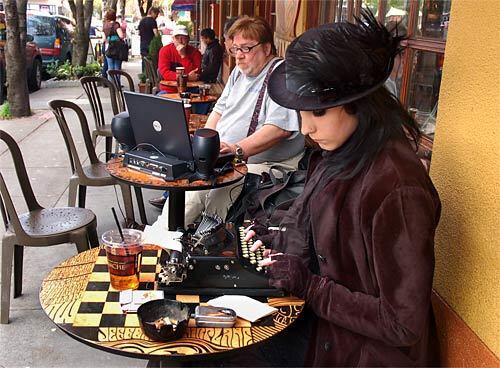
In an ever-so-modern city, Jessica Hulse, 23, sports an ever-so-vintage look, right down to the 1922 Remington portable typewriter at her fingertips. Hulse is sitting at a coffeehouse on 21st Avenue in PortlandÂ’s Northwest area, whose history as a haven for eating and shopping goes back decades. The area is also at one end of the aforementioned streetcar line. (Christopher Reynolds / LAT)
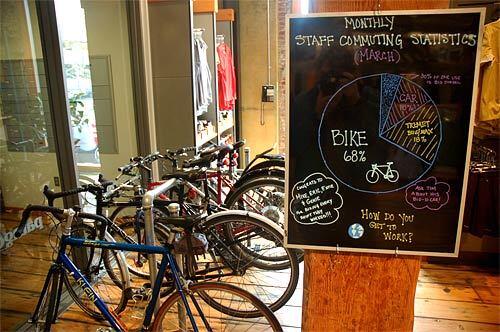
A blackboard at a Patagonia store in the Pearl District boasts that 68% of the staffÂ’s commuting trips in March were by bicycle and 22% by bus, train or carpool. The store is housed in the EcoTrust Building, an 1895 brick landmark thatÂ’s been rehabbed since 1998 according to exacting green standards, from the garden on the roof to the weathered old floorboards. (Christopher Reynolds / LAT)
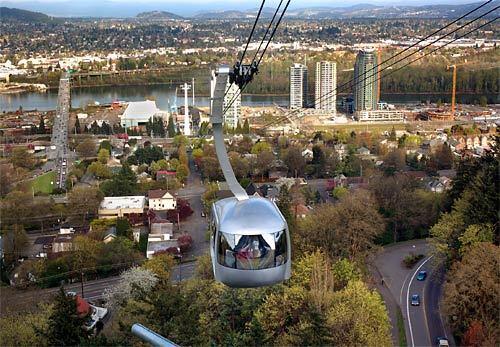
A new $57-million aerial tram carries riders to and from a hilltop at Oregon Health & Science University, affording them wraparound views of the Willamette River, downtown skyscrapers and, on clear days, the snowy tops of Mt. St. Helens and Mt. Hood. The tram ascends from the South Waterfront area, a formerly idle industrial zone that is Portland’s next new neighborhood — and the streetcar line is scheduled to reach farther into it in July. (Christopher Reynolds / LAT)
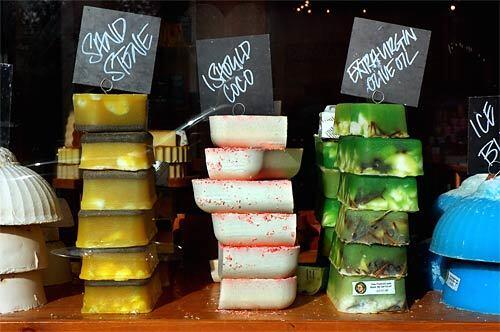
Fancy soaps are stacked at Lush, a store in the Northwest areaÂ’s 23rd Avenue, nicknamed Trendy-Third. Upscale shops and restaurants have been multiplying in the area served by the streetcar line. (Christopher Reynolds / LAT)
Advertisement
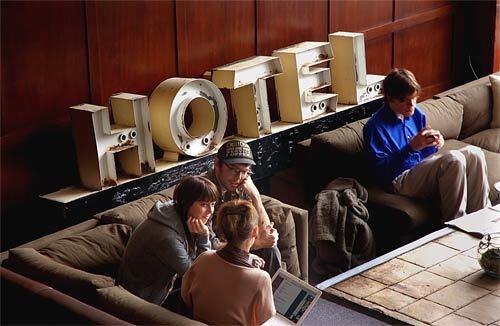
An old sign has a featured spot in the lobby of the downtown Ace Hotel, which has supplanted the old Clyde Hotel on Southwest Stark Street. Does the Ace aspire to make an impression? Well, Tthe headboards are made from recycled German military ponchos, and 14 rooms will soon be outfitted with working turntables and vintage vinyl. (Christopher Reynolds / LAT)
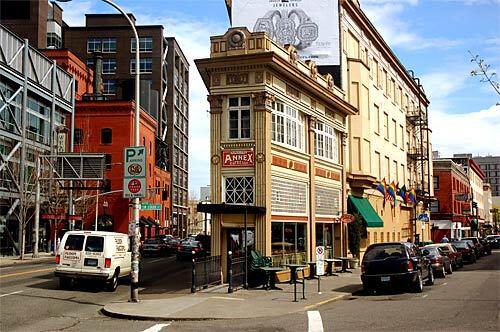
A sliver of a building squeezed between two streets is home to a coffeehouse downtown. More spacious attractions there include the Portland Art Museum, which expanded in 2005, taking over the former Masonic Temple next door and refitting it to house modern and contemporary art; and Portland Center Stage, which took over the 1891 Portland Armory Building and reopened last fall with a new performance space inside. (Christopher Reynolds / LAT)



